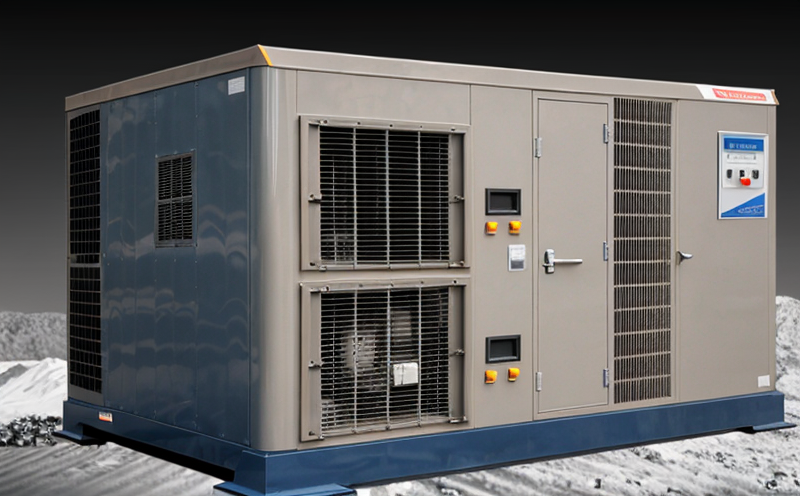JEDEC JESD22-A119 Power Dissipation Thermal Testing
The JEDEC JESD22-A119 standard is a crucial procedure for evaluating the power dissipation and thermal performance of semiconductor devices under controlled conditions. This test ensures that microchips can withstand high-power output without compromising functionality or reliability.
During this testing, the device under test (DUT) is subjected to power levels and time durations specified by the standard. The goal is to simulate real-world operating conditions where excessive heat might occur due to prolonged periods of high power consumption. By doing so, engineers can identify potential thermal issues early in the development process.
The JESD22-A119 test involves controlled heating and cooling cycles that challenge the DUT's ability to dissipate heat effectively. This helps manufacturers understand how well their designs meet industry standards for power dissipation limits. Compliance with this standard is essential for ensuring product longevity, safety, and performance in various applications.
Thermal management plays a critical role in modern electronics design, particularly when dealing with high-performance processors and integrated circuits that generate significant heat during operation. The JESD22-A119 test provides insights into how these components behave under extreme thermal stress conditions, allowing for improvements in thermal design before mass production.
The testing procedure typically includes setting up the DUT on a temperature-controlled platform followed by applying specified power loads for defined periods. Temperature sensors monitor the chip’s surface temperature throughout the process to ensure it remains within acceptable limits. If overheating occurs, further investigation is necessary to determine root causes and implement corrective measures.
The results of this testing are vital for quality assurance teams responsible for ensuring that end products meet rigorous performance criteria set forth by regulatory bodies like JEDEC. Engineers use these findings to optimize thermal management strategies such as adding heatsinks or improving airflow around components.
Furthermore, compliance with JESD22-A119 enhances a company's reputation among customers who value reliable and durable electronic devices capable of performing consistently across diverse environmental conditions.
In summary, JEDEC JESD22-A119 power dissipation thermal testing is an indispensable tool for semiconductor manufacturers aiming to produce robust, efficient, and long-lasting microchips. It provides valuable data that aids in improving product quality while also contributing positively towards overall industry standards.
Eurolab Advantages
- Accurate Results: Our state-of-the-art facilities and experienced personnel guarantee precise measurements that align closely with international standards.
- Comprehensive Support: We offer full support throughout the testing process, from initial consultation to final report generation.
- Experienced Staff: Our team consists of highly trained professionals with extensive experience in semiconductor testing.
- Fast Turnaround Times: Thanks to our efficient operations and streamlined processes, we can provide quick turnaround times without compromising on quality.
Environmental and Sustainability Contributions
By adhering strictly to the JESD22-A119 standard during our testing procedures, we contribute positively towards environmental sustainability efforts. Ensuring that semiconductor devices are capable of handling high-power outputs efficiently reduces energy consumption over their lifecycles.
In addition, reliable microchips designed based on these tests help minimize waste generation by enhancing product durability and reducing the frequency of replacements. This aligns with broader goals aimed at promoting resource efficiency and reducing electronic waste globally.
Competitive Advantage and Market Impact
- Market Leadership: Compliance with JESD22-A119 enhances a company’s competitive edge by demonstrating commitment to high-quality manufacturing practices.
- Innovation Facilitation: Our testing services enable continuous improvement in semiconductor design, leading to innovations that drive market evolution.
- Satisfied Customers: By offering reliable and efficient testing solutions, we help our clients build trust with their customers through consistent quality assurance processes.





